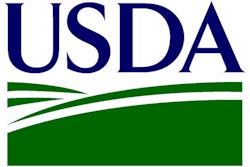Imported corn and soybeans meant for the burgeoning organic food market in the U.S. could easily be treated with pesticides in overseas farm fields, a recent report suggested.
The Washington Post reviewed several recent shipments of "organic" grain from Turkey based on documents provided by an unnamed industry expert — and found ample evidence of fraud.
The paper focused on a shipment of 36 million pounds of soybeans, which were grown with the help of pesticides in Ukraine but were labeled as organic when they arrived in California late last year.
Global Natural, the Maryland company that brokered the soybean shipment, acknowledged it could have been “provided with false certification documents," but the report particularly showcased vulnerabilities in the U.S. Department of Agriculture's "USDA Organic" labeling program.
Although most products affixed with that label are grown in the U.S., large shares of organic corn, soybeans, coffee and other commodities come from overseas. Suppliers of those products are required to be verified by the USDA, but the agency does not trace them back to their respective farms.
Critics also argued that inspection regimens are weak and pesticide testing uncommon.
Officials from the USDA told the Post that regulatory oversight was strong and that authorities were investigating the grain shipments in question, but the report said that the soybean shipment was tested only after the paper began asking questions about it.
At that point, more than half of the soybeans were already on their way to customers. The shipments were largely intended to serve as animal feed for the organic dairy and meat sectors.
The agency also did not issue any sanctions over fraudulent grain labeling in recent years as imports of organic corn and soybeans tripled.
The motivation to cheat, meanwhile, is strong.
The Post said that products with a "USDA Organic” label can sell for twice as much as a non-organic product. The soybean shipment ultimately led to an additional $4 million somewhere along its supply chain.
“The U.S. market is the easiest for potentially fraudulent organic products to penetrate because the chances of getting caught here are not very high,” John Bobbe of the Organic Farmers’ Agency for Relationship Marketing cooperative told the paper.
Report: Imported 'Organic' Grain Shipments Treated With Pesticides
Imported corn and soybeans meant for the burgeoning organic food market in the U.S. could easily be treated with pesticides in overseas farm fields, a recent report suggested.
May 16, 2017
Latest in Operations
Functional Material Design Strategies for Industrial Ventilation Systems
September 16, 2025
How Satellite Imagery Drives Manufacturing Innovation
September 16, 2025
Trump Says the U.S. Should Do Away with Quarterly Earnings Reports
September 15, 2025






















